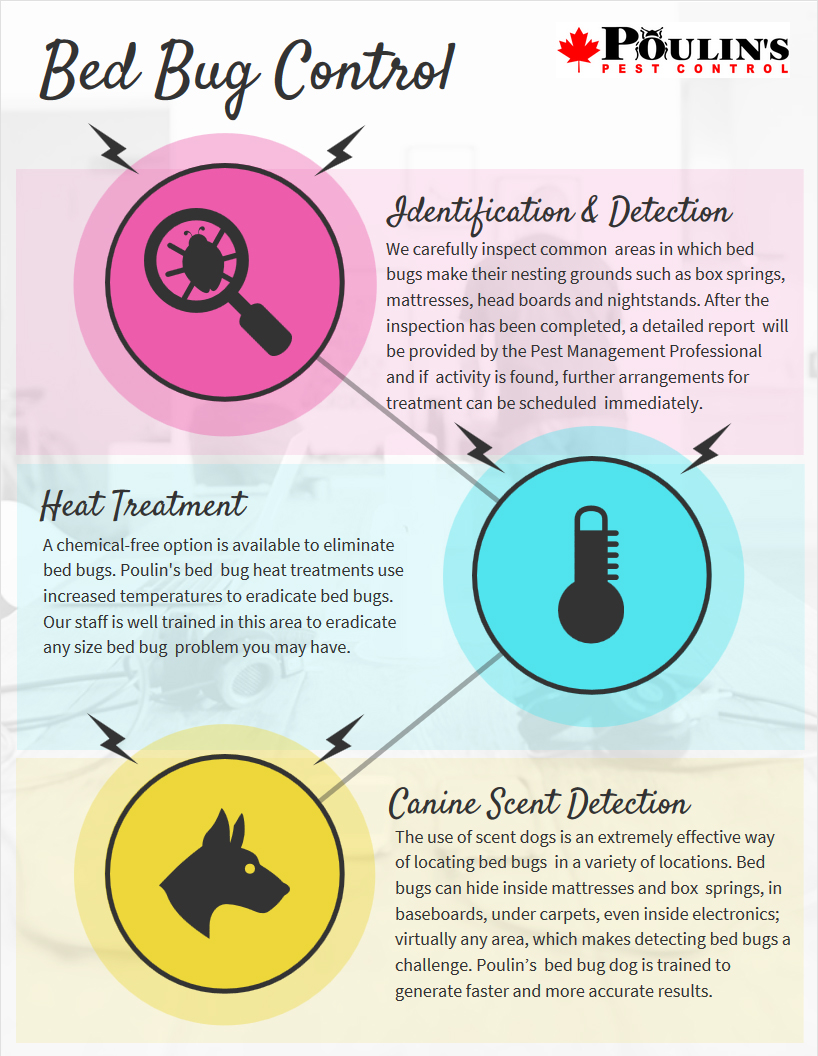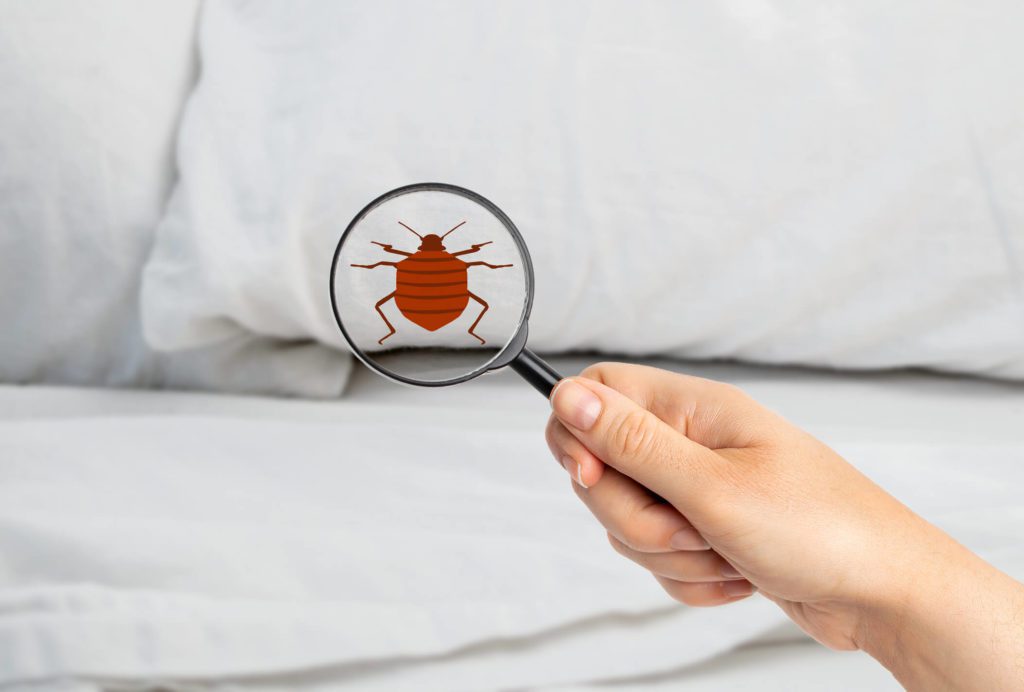Comprehensive Kings Bug Control Services Cincinnati OH
Comprehensive Kings Bug Control Services Cincinnati OH
Blog Article
Sorts Of Parasite Control: Which Approach Is Right for Your Infestation?
When faced with a parasite problem, the option of an ideal technique for bug control is essential in properly managing the circumstance. From chemical treatments to organic services, there exists a variety of strategies that can be used to deal with various kinds of insects. Each technique includes its very own set of benefits and considerations, making the decision-making process a nuanced one. Recognizing the nuances of each method and examining their compatibility with the specific parasite problem at hand is necessary for achieving long-lasting success in pest monitoring. By discovering the numerous sorts of bug control techniques offered, people can make informed choices customized to their unique scenarios, guaranteeing a more sustainable and effective end result in insect elimination.
Chemical Parasite Control
Chemical insect control entails using synthetic or normally acquired chemicals to handle and remove pest populations effectively. This method is generally utilized in farming, forestry, and residential settings to fight a broad range of parasites, consisting of rats, insects, and weeds. The usage of chemical pesticides can give quick and targeted options to pest problems, making it a prominent option for numerous individuals and companies.
One of the crucial advantages of chemical pest control is its ability to swiftly remove parasites, lowering the risk of damages to crops, residential or commercial property, and human wellness. By using details chemicals that target specific pests, this method can effectively control infestations while minimizing damage to beneficial microorganisms and the setting when applied correctly.
However, using chemical pest control also increases concerns concerning prospective unfavorable results on non-target types, water sources, and human health and wellness. It is vital to adhere to safety guidelines, use chemicals sensibly, and take into consideration alternative parasite control techniques to decrease these dangers and guarantee lasting pest monitoring practices.
Biological Bug Control
Organic bug control, likewise understood as biocontrol, makes use of living microorganisms to manage and minimize pest populations normally. By using the pest's all-natural killers or microorganisms, biological insect control provides a sustainable and eco friendly solution to pest monitoring.

Mechanical Parasite Control
Using physical and hand-operated approaches to handle pest populaces, mechanical bug control offers an alternative approach that does not depend on making use of living microorganisms or artificial chemicals. This approach involves making use of barriers, traps, or various other gadgets to literally discourage or get rid of parasites. By obstructing parasite access points or establishing catches to catch them, mechanical pest control can efficiently lower infestations without presenting chemicals into the setting.
One typical example of mechanical insect control is the use of mesh screens on windows and doors to avoid insects from entering structures. This straightforward yet effective method works as a physical obstacle, keeping parasites out while permitting appropriate ventilation. Furthermore, gadgets like mousetraps, fly swatters, and ultrasonic repellents fall under the mechanical pest control category.
While mechanical bug control techniques can be labor-intensive and need regular surveillance and upkeep, they use a ecologically friendly and sustainable option for managing pest problems. By combining various mechanical techniques, homeowner can develop a comprehensive bug control strategy that lessens dependence on chemical pesticides.
Physical Parasite Control

Some usual physical parasite control methods consist of using obstacles such as internet or screens to stop insect entrance, catches to record and get rid of bugs, and hand-picking to literally get rid of pests from plants or frameworks. In addition, strategies like warm therapies can be utilized to manage pests like bed pests by elevating the temperature to levels that are deadly to the pests.
Physical pest control is specifically beneficial in incorporated parasite administration (IPM) methods, where numerous bug control approaches are integrated for effective bug administration Visit Your URL while lessening the use of chemicals. By utilizing physical bug control strategies, individuals can properly address parasite infestations with marginal environmental impact.
Integrated Insect Monitoring
When applying physical pest control techniques as part of bug administration approaches, Integrated Insect Management (IPM) becomes an extensive strategy that leverages different methods to effectively control pest populations. IPM concentrates on lasting avoidance of parasites via a combination of organic, cultural, physical, and chemical tools customized to particular pest issues. By incorporating several control tactics, IPM aims to decrease the threats linked with insects while likewise reducing reliance on chemical remedies.
One trick aspect of IPM is the focus on tracking and examining pest populations to determine one of the most ideal control approaches. This proactive approach allows for early treatment and targeted strategies, leading to more effective pest management. Furthermore, IPM promotes eco-friendly techniques by prioritizing non-chemical control methods and just using pesticides as a last resource.
Final Thought

By utilizing the bug's all-natural killers or microorganisms, biological bug control uses a sustainable and ecologically friendly service to pest administration. - Kings pest control Cincinnati Ohio
Utilizing hands-on and physical methods to handle parasite populations, mechanical pest control uses a different approach that does not rely on the usage of living microorganisms or artificial chemicals.A reliable strategy to handling bug populaces without depending on chemical or organic techniques entails the use of physical pest control techniques.When implementing physical parasite control approaches as component of bug monitoring techniques, Integrated Bug Management (IPM) emerges as a thorough his explanation approach that leverages various strategies to effectively control pest populaces. Chemical bug control involves the usage of pesticides, organic parasite control utilizes all-natural predators, mechanical parasite control entails physical barriers, physical insect control includes trapping or removing parasites, and incorporated bug monitoring combines several methods for a holistic strategy to pest control.
Report this page